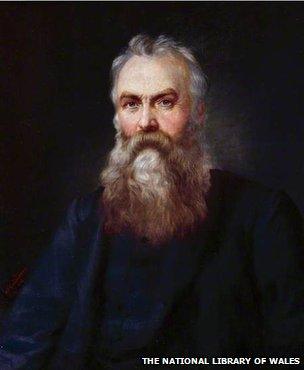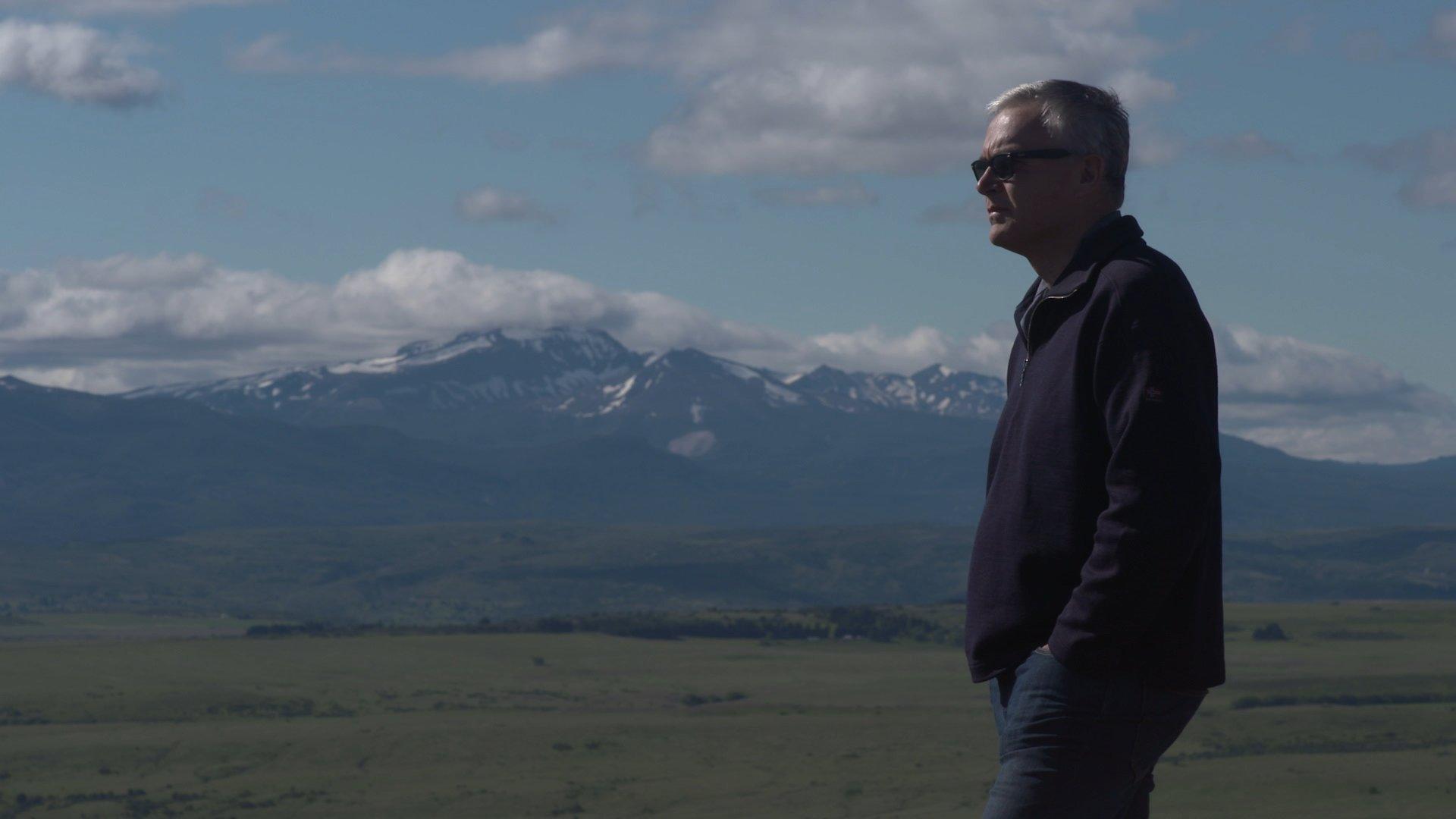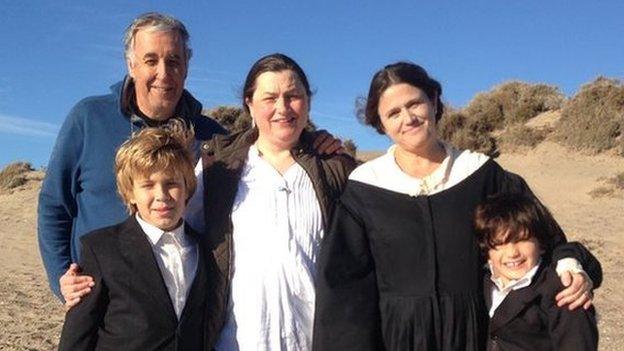Patagonia 150 years on: A 'little Wales beyond Wales'
- Published

Some of the original passengers from the Mimosa, pictured 25 years after they arrived in Patagonia
They had little idea of what awaited them, but 150 years ago this week the first Welsh settlers set sail for Patagonia in search of a "little Wales beyond Wales".
For those first 153 pioneers, the eight-week voyage aboard an aging clipper called Mimosa, would be arduous enough.
But even worse hardships lay ahead, as the 100 sq miles (250 sq km) of land they had been promised was as fertile as lowland Wales, turned out to be a semi-arid desert.
Short of drinking water and lacking farming expertise, they set out across the parched plain, pushing their belongings in wheelbarrows.
Some died on the march, but many survived to form Y Wladfa - which a century-and-a-half later is still a thriving Welsh community.
Now, pupils from Patagonia's first Welsh/Spanish bilingual school have returned to Wales to celebrate the sacrifice of their forefathers in 1865.

Children from Ysgol yr Hendre travelled from Patagonia to perform at the Urdd Eisteddfod in Caerphilly
The 10-year-olds from Ysgol yr Hendre in Trelew have been taking part in the Urdd Eisteddfod in Caerphilly county, and were welcomed to the Senedd by Presiding Officer, Dame Rosemary Butler.
"It is great to welcome these Welsh speaking young people from the other side of the world to the seat of Welsh governance," said Dame Rosemary.
"Those Welsh people who left Liverpool in 1865 were setting sail for a better life and for a life where they could live through the Welsh language.
"It is a privilege for me to welcome their ancestors back to Wales 150 years later and to know that they have succeeded in creating a Welsh community on the other side of the world where the language is still at its heart."
The concept of a "little Wales beyond Wales", where Welsh non-conformists would be free to speak their own language and practice their religion had been mooted as early as the 1850s, by Welsh nationalist preacher Prof Michael D Jones.

Michael D Jones (1822-1898) by Ap Caledfryn
Areas in Australia, New Zealand and Palestine were considered, but Prof Jones believed the isolation of Patagonia's Chubut river basin offered the best chance of a Welsh community flourishing, well away from the influence of English-speaking settlements.
The 153 migrants paid £12 each for a place aboard Mimosa, even though the tea-clipper's conversion to passenger use was rudimentary at best.
Desperate to populate the areas outside of Buenos Aires, the Argentine government had somewhat overplayed the suitability of Chubut.
A prolonged drought was followed by flash floods which washed away houses and crops in the early settlement of Rawson.
But with the help of the native Tehuelche People, the settlers learnt how to irrigate their fields with the waters of the Chubut River, and by 1885 wheat production had reached 6,000 tons and was winning prizes all over the world.

The 153 passengers paid £12 each for a place aboard the Mimosa
It is a tale which has inspired Clwyd Theatr Cymru's Tim Baker to write a play, which will tour Wales throughout May, June and July.
"It is amazing to think that no-one has really grasped this story theatrically," he said.
"It's a magical tale, but one that is also filled with disappointment, hardship and fear.
"The Welsh went on a dangerous voyage on Mimosa in anticipation of reaching paradise. But once they arrived they faced this bleak infertile terrain, a desert. We can only imagine the disappointment."

Clwyd Theatr Cymru's play Mimosa will be shown in Wales before touring to Patagonia at the end of August
From those first 153 settlers, today it is thought there are about 50,000 people with Welsh heritage in Patagonia, around 5,000 of whom are Welsh-speakers.
But despite a Welsh language project which since 1997 has sent three Welsh teachers a year to Patagonia, Prof Robert Owen Jones - a leading academic on the Welsh language in Patagonia - said the language in Argentina was in danger unless its use was encouraged in day-to-day activities.
He said: "If the language is to survive - in both Argentina and here in Wales - it must move beyond the borders of the classroom.
"Socialisation and normalisation of the language is needed for Welsh to survive in Patagonia."
The anniversary of Mimosa's departure will be marked in Liverpool on Saturday, when First Minister Carwyn Jones will unveil a 4ft-high (1m) red dragon monument at Princess Dock, as part of celebrations organised by The Liverpool Welsh Society.
- Published26 May 2015

- Published21 April 2015

- Published19 April 2015
